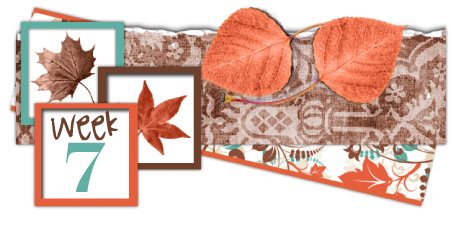Today, we started mystery! We had these notes:
What is genre? it's the kind, type, "flavor" or classification of the book.
Why does genre matter? There are a specific set of rules for each type of fiction. Readers know what the rules are, based on their previous experience with that genre.
The "Drama" or "Problem" Novel
A strong, interesting, believable plot that centers around a problem a young person might actually experience.
Transports the reader into another person's life and problems/issues.
The characters are round (dynamic) and have a balance of good and bad qualities or characteristics.
The issue (problem) adds to the the story (moves the story along/is central to the plot).
The story, issue, author leaves the reader with something to deeply consider, think about or ponder.
The story should be smooth and it should have mass, wide, or large appeal so that it speaks to a broad audience.
There should be time so that the reader has to think.
Dramas have conflict.
They have a resolution at the end, not a happy ending.
There are 2 main characters, an antagonist (against change) and a protagonist (wants change).
These are not "good guys" or "bad guys." They are simply working at an issue from different perspectives.
1. Ther e must be a quest (adventure) with a grand purpose.
e must be a quest (adventure) with a grand purpose.
2. There's a hero who's usually young and untrained in the beginning.
3. The purpose of the quest is to right a wrong or save the world.
4. There must be a battle of good vs. evil and good must win (If evil wins it's an anti-hero).
5. There's always a side-kick and his/her job is to help the hero.
6. There's usually a wise old man or guide (often a female oracle)
7. The hero must save the world but he or she may die in the process.
Science fiction must stick to natural laws. (Gravity, sound in space, etc. Time travel and faster-than-light are often ignored entirely, however.)
must stick to natural laws. (Gravity, sound in space, etc. Time travel and faster-than-light are often ignored entirely, however.)
Laws must be clear and defined.
Most writers of science fiction are male.
Characters voyage in space. They must save the universe.
Science fiction is more action than science.
It always takes place in the future.
However, the problems are always current.
The target audience for science fiction is male, ages 15+
Science fiction sometimes combines with fantasy.
2 kinds of this are utopian and dystopian. Utopian means a perfect world. Dystopian means a messed-up world.
A movie with a utopia in it: Star Trek
A movie with a dystopia in it: City of Ember, The Matrix, Corraline
 Mystery Notes
Mystery Notes
There are 6 kinds of detectives:
1. The amateur detective (examples: Nancy Drew, Scooby Doo.)These are ALTRUISTIC detectives who are solving crimes because "it's the right thing to do."
2. The Neighborhood Detective (example: Murder She Wrote, Encyclopedia Brown.) This detective solves crimes in their town as a benefit to the town. These are often amateurs and are doing it to benefit the people they live with. They take place in a specific area, have a local sheriff, and local characters---like pastor/religious leader.
3. The Private Investigator.(Examples, Magnum, P.I., Sue Graftons's Kinsey Milhone, Psych.) These detectives solve crimes they are paid to investigate. This is their job, but they could quit at any time because they are motivated by money. It's not the same as a police investigation, but the private investigator is often a former policeman or someone involved with law enforcement.
4. The "Law and Order" Detective (Examples: CSI, NCIS, Patricia Cornwell's Kay Scarpetta, James Patterson's Women's Murder Club.) These are detectives with titles (like doctor, Detective, Inspector, Crime Scene Investigator, Special Agent). They investigate crimes because "That's my job!" to uphold the law and bring criminals to "justice." They are motivated by right and wrong, legal definitions, and often led by science.
5. The SPY (Examples: Anthony Horowitz's Alex Rider, Jason Bourne from The Bourne Identity, Mission Impossible) These detectives are discovering mysteries and solving crimes that are world-wide and involve the lives and issues of entire countries. They have gadgets and rules that are above and beyond normal standards.
6. The Personal Detective (Examples: Mary Higgins Clark characters, Dan Brown's Robert Langdon, romance-mysteries) This detective is motivated by life-and-death situations where he/she MUST solve the crime to stay alive. The initial murder being investigated is personal (a loved family member or close friend) and "it's personal" and they are on a "quest" to solve an unsolved murder the police haven't been able to solve.

Satisfying mysteries follow these 6 rules
Rule ONE: (clues) All the clues MUST be in the book. No clues are left out and suddenly appear at the end of the book. We want a chance to evaluate the evidence.
Rule TWO: (crime) The crime must be significant and we must care about it to want to solve it.
 Rule THREE: (criminal) The actual criminal must be introduced early into the book. While we may not know his name, we know things about him.
Rule THREE: (criminal) The actual criminal must be introduced early into the book. While we may not know his name, we know things about him.
Rule FOUR: (detective) The detective must WORK at solving the crime. It can't be too easy or we feel cheated.
Rule FIVE: (suspects) There must be a defined list of suspects, and the actual criminal must be among them--or connected to the list.
At the end, the mystery MUST be solved.
Most mysteries start "in media res" which is Latin for "in the middle" of the story.
In class we started Agatha Christie's Witness for the Prosecution and will finish it in the next class period.























